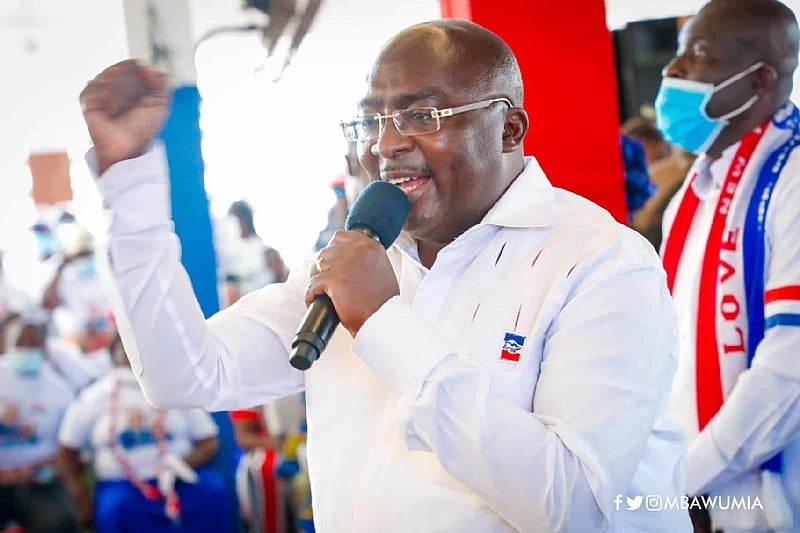The New Patriotic Party (NPP), under the leadership of its 2024 flagbearer, Dr. Mahamudu Bawumia, is embarking on a journey of introspection and reform following its defeat in the 2024 general elections. Having campaigned on the promise of “breaking the eight,” a reference to the historical eight-year cycle of alternating power between the NPP and the National Democratic Congress (NDC), the party faced a significant setback, losing the presidential election by a substantial margin of 1.7 million votes to the NDC’s John Dramani Mahama. This defeat was compounded by a sharp decline in parliamentary representation, with the NPP’s seat count dropping from 137 to 88, ceding ground to both the NDC and independent candidates. Dr. Bawumia recognizes the magnitude of this loss and emphasizes the urgent need for unity, inclusivity, and a renewed focus on national development to regain the trust of the Ghanaian electorate.
Dr. Bawumia’s vision for the NPP’s resurgence centers on the principles of unity, humility, and open arms. He stresses the importance of moving beyond internal divisions and embracing a collective spirit of purpose. Recognizing the need to learn from the electoral defeat, he advocates for humility in acknowledging shortcomings and a willingness to listen to the concerns of all Ghanaians. This inclusivity extends to reaching out to individuals from diverse backgrounds, regardless of region, religion, or political affiliation, to demonstrate that the NPP is a party committed to national progress, not narrow partisan interests. By embracing these principles, Dr. Bawumia believes the NPP can transform its electoral setback into a platform for a powerful comeback.
A key component of Dr. Bawumia’s proposed strategy for rebuilding the party involves enhanced engagement with all segments of Ghanaian society. He proposes the establishment of regional liaison committees to actively gather input from various communities, ensuring that the party’s policies and initiatives are informed by the aspirations and needs of the people they serve. This bottom-up approach to policy development aims to bridge the gap between the party and the electorate, fostering a sense of ownership and shared responsibility for national development. By incorporating the voices and perspectives of diverse communities, the NPP can develop policies that are more responsive to the challenges and opportunities facing the nation.
Furthermore, Dr. Bawumia’s emphasis on national development over personal ambition underscores a commitment to prioritizing the collective good over individual political gain. He calls for a shift in focus from internal power struggles to a shared dedication to serving the interests of the nation. This renewed focus on national development aims to resonate with the electorate, demonstrating that the NPP is not merely a political entity seeking power but a force for positive change in Ghana. By prioritizing the needs of the nation, Dr. Bawumia believes the NPP can regain the trust and support of the Ghanaian people.
The proposed regional liaison committees will serve as crucial conduits for gathering feedback and insights from communities across Ghana. These committees will be tasked with engaging with local stakeholders, including traditional leaders, religious groups, civil society organizations, and ordinary citizens, to understand their concerns and aspirations. This direct engagement with local communities will provide invaluable data and perspectives that can inform the NPP’s policy development process, ensuring that policies are relevant and impactful at the grassroots level. By actively listening to the voices of the people, the NPP can develop policies that address the real-world challenges facing communities and contribute to meaningful progress.
In conclusion, Dr. Bawumia’s vision for the NPP’s revitalization hinges on a fundamental shift towards greater inclusivity, humility, and a renewed focus on national development. By embracing these principles and actively engaging with communities across Ghana, the NPP aims to transform its electoral setback into an opportunity for growth and renewal. The proposed establishment of regional liaison committees will play a crucial role in gathering input from diverse stakeholders, ensuring that the party’s policies are informed by the needs and aspirations of the people they serve. Through this approach, Dr. Bawumia believes the NPP can rebuild trust, regain momentum, and position itself as a driving force for positive change in Ghana. The party’s ability to effectively implement these proposed changes will be critical in determining its future success and its ability to once again earn the mandate of the Ghanaian people.














